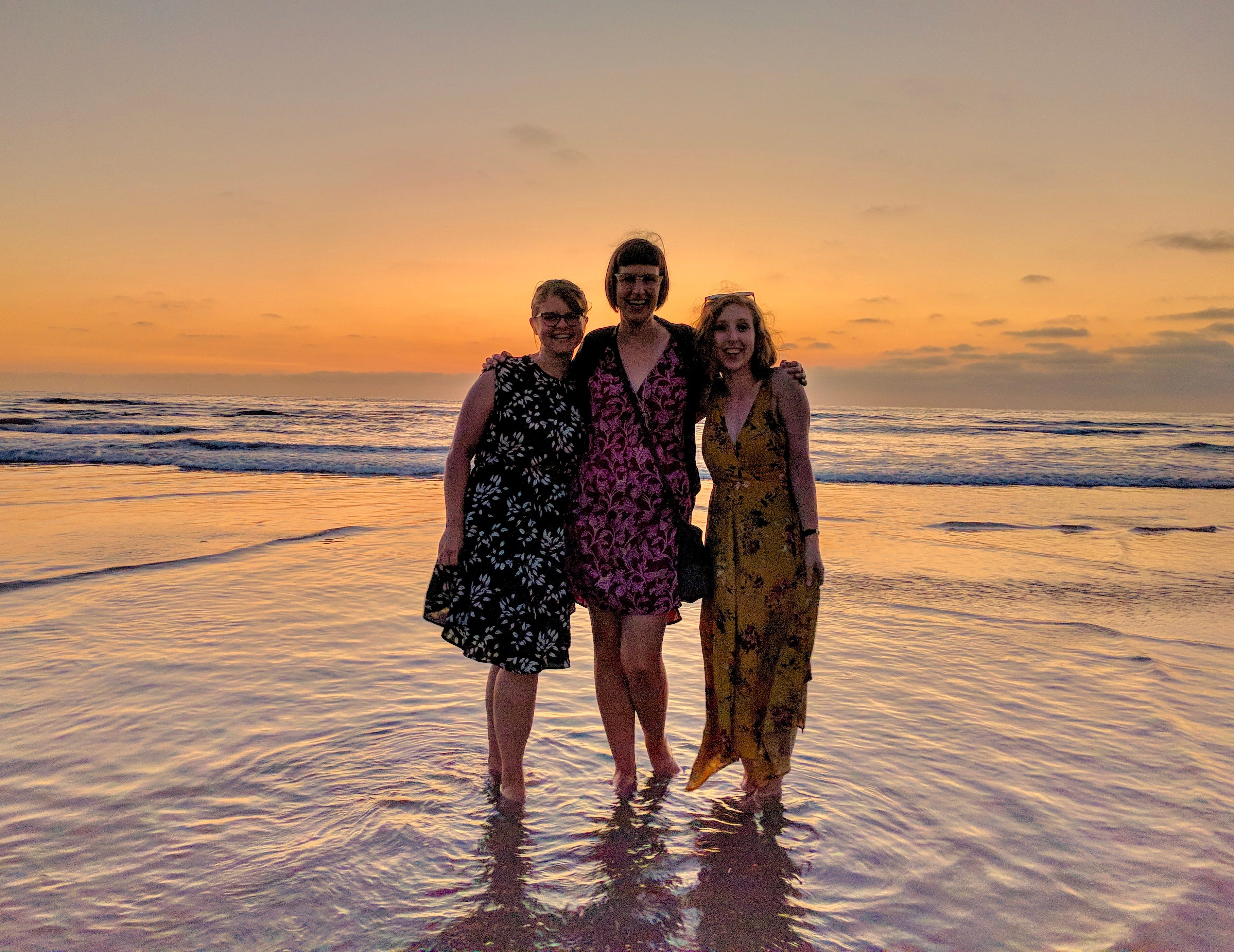Warm Fuzzies and Finger-Pointing: Open’s Surveillance and Call-Out Culture
- 4 minsLet me first say this: I love the Open community.
It started in a line for pizza at OpenCon 2016. I knew I liked doing the work (but c’mon, who doesn’t like reviewing a publishing agreement to help an author self-archive their work?) but I didn’t know yet how much I would love the people. But standing in a line at American University, trying to figure out if drinks were free or if there was a cash bar and if I even had cash for tip let alone a beer and also trying to make small talk with strangers I met two people who changed my life personally and professionally.
 Feeling my warm fuzzies with my open buddies, August 2018
Feeling my warm fuzzies with my open buddies, August 2018
Sarah Hare and Ali Versluis (two people who, if you do not know already, you might want to check out) are only two of the many folx working in Open that rocked my world at that conference, and over the past three years I have met and continue to meet people who embody the spirit of the open community and who in turn open my mind and change my perspective. People are generally warm and accepting and sometimes even aggressively helpful in ways I didn’t know I needed.
And all of these warm fuzzies, they’ve made it easy for me to feel like Open is a cozy cocoon. But they also make it easy to ignore systemic issues, to conflate community and culture, and to write off cracks in the foundation as individual problems associated with a particular “bad egg.”
People are generally good.
That’s what my dad would repeat to me, like a soothing little mantra. Every time I came home from school in a huff because someone teased me or didn’t want to play what I wanted to play at recess (still wish people would play foursquare with me), he would remind me of this. He still does. When I have a bad day at work, or don’t see eye-to-eye with a colleague, I call him. And after listening patiently, he says, “People are generally good. It’s not an excuse for their actions, but they are not solely their actions.” And then we talk through the circumstances surrounding the issue, and what might be going on for the other person, and I always hang up feeling — albeit begrudgingly — a little more understanding. And I remember to call my mother if I really want to vent.
This has been tumbling around in the back of my brain lately. Scrolling through Twitter, I’ve see glimpses of the division in our Open community. We expect everyone to fully embody our individual vision of Open. Whether that be a full transparency in business practices, only using a CC-BY license for content, or only considering work open if it’s accessible without a password, many of us have our own vision of “open” and stick to it. I hold strong views of what I consider to meet the threshold of open and what the benchmarks for openness should be. But when that vision is not met, we play the blame game. We point fingers at individuals. We, the community, are watching each other’s every move. Surveilling each other, looking for flaws. And we want you to shape up or get out. We want the problem to be fixed, and we want the fix to be as clean as cutting someone out of the equation.
This mentality, it creates fear. It borders on bullying. It furthers division. It’s not helping any of us. The truth is, we built this system. We are a community and we are collectively responsible for maintaining our community. We need to own our shit.
We made a community where folx can behave poorly and still be judged on the merits of their work and not the sum total of their actions. Where for-profit organizations can be the leaders of a sector of the open movement. Where conferences and events are inaccessible to so many. Where lines on CVs matter more than being present and doing your work. And yet we cite these people, attend these conferences, pay these fees, and spend this time away from our desks. We operate within this system, take advantage of the many things that it has afforded us, and besmirch the character of others who are frankly doing the same.
Change is incremental. It doesn’t happen in an instant. And when we call-out individuals and demand change, it positions us in opposition to ourselves. I don’t know about you all, but I don’t want to wage a war, I want to shape our community. I want to understand our systems, I want to know how other people see this community, and I want to be open.
So here’s what I promise:
- I will not judge people as a whole exclusively on their actions.
- I will question my perception of open and engage in conversations before jumping to conclusions.
- I will not be complicit in behaviour and systems that I feel are problematic, and I will to the best of my ability articulate why to my community.
- I will remind myself that people are generally good.
I hope you’ll join me.
